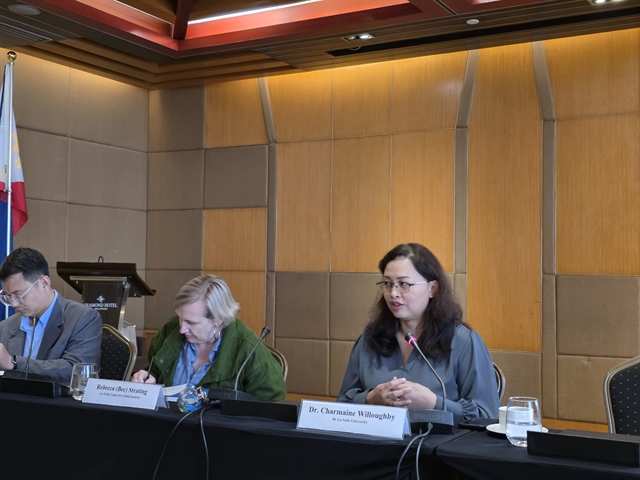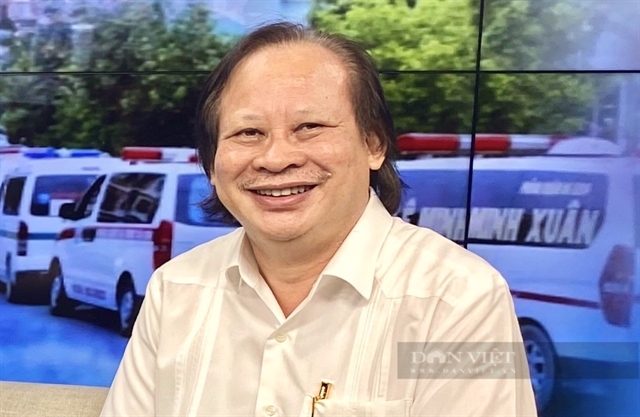 Opinion
Opinion


|
| Associate Professor and Doctor Nguyễn Viết Nhung, director of the Central Lung Hospita. Photo courtesy of the doctor. |
Associate Professor and Doctor Nguyễn Viết Nhung, director of the Central Lung Hospital, talked to Dân Việt online newspaper about the causes and solutions to protect severe COVID-19 cases while the pandemic is on the rise.
The Emergency Department of the Đông Anh branch of the Central Hospital for Tropical Diseases has been overloaded recently due to the increasing number of severe COVID-19 patients, mostly elderly. What has caused this?
The goal of the Ministry of Health is to minimise deaths from the disease. Therefore, in order to reduce fatalities, we must minimise the number of patients getting severe symptoms.
In recent days, the National Hospital for Tropical Diseases has been working at full capacity because of the high number of infected cases, mainly the elderly, people with underlying diseases, especially those who have not been vaccinated.
In Đồng Nai Province, 60 per cent of people dying from COVID were unvaccinated and 20 per cent had received only one vaccine dose. Infections and deaths of fully vaccinated individuals account for about 20 per cent.
Vaccines play a critical role in reducing infection, severe illness from COVID-19 and deaths.
We have not done well vaccinating in many localities while people in high risk of getting severe symptoms and death should be given vaccines.
Health facilities in commune and ward levels do not dare to vaccinate the old age group and people with underlying conditions for fear of risks after injection. These cases should be taken to the hospital to get vaccines or health staff from hospitals should be sent to localities to help vaccination.
Many localities have not yet paid attention to 100 per cent vaccine coverage in people over 50 and those with underlying conditions.
What do hospitals, especially central hospitals, need to do to reduce the number of patients at higher risk of getting more severe symptoms and dying?
Many localities reported that their vaccine coverage reaches 70-80 per cent but the number of elderly people and people with underlying conditions have not been fully vaccinated.
Grassroots medical facilities should improve their healthcare services to respond to treatment demand if the number of infection cases increases.
Patients should be given psychological counselling, nutrition, exercise guidance and medication.
Now we have antiviral drugs for controlled treatment of COVID-19. Localities are responsible for contacting the Ministry of Health to help patients can access antiviral drugs as soon as possible.
If we can do that, the number of patients getting worse and dying will reduce greatly.
Of course, in addition to reducing infection, it is necessary to comply with 5K measures, monitor and prevent outbreaks.
Healthcare services at grassroots medical clinics and vaccination needs to be done well to avoid overload for upper-level hospitals.
According to statistics of the National Steering Committee for Covid-19 Prevention and Control, more than one million people have fully recovered from the virus. Do you think these people should be mobilised to support the health sector in pandemic prevention?
Grassroots health system has a shortage of medical staff to respond to the pandemic. Health workers at the ward and commune levels cannot do all the work according to the instructions of the Ministry of Health. So it is necessary to have a support force. People that have recovered from the disease or community-based COVID-19 prevention teams are really potential resources to support grassroots healthcare system.
These people need to be mobilised and everyone should be responsible for taking care of new patients.
People's Assembly in localities should review and use their budgets to support volunteers to care for and treat new F0 cases at home.
I think it is very important. I would like to recommend all localities to review and implement this model effectively. — VNS




